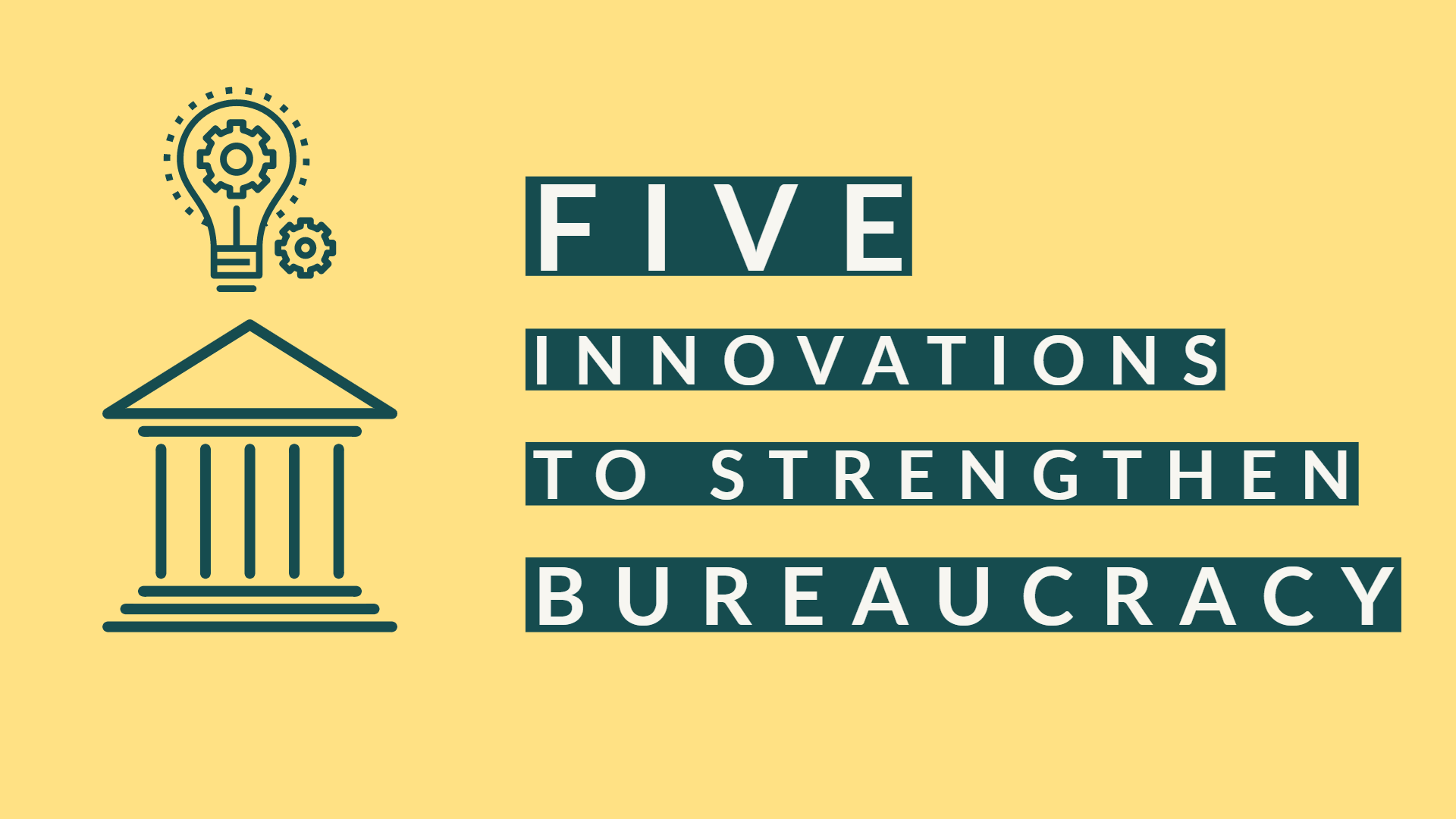 Five innovations to strengthen bureaucracy
Five innovations to strengthen bureaucracy
Editor's note: This blog post is part of a series for the 'Bureaucracy Lab', a World Bank initiative to better understand the world's public officials.
As co-lead of the World Bank's Bureaucracy Lab, I have come across a range of approaches to strengthening bureaucracies around the world. Here is a summary of five notable ones that we've come across recently.
1. How do we strengthen the accountability of the most senior public officials?
Imhigo is a Rwandan initiative for committing officials to specific service achievements and then publicly evaluating them, as described in a Foreign Policy article based on a Princeton case study. The idea is that you use traditional systems of governance in which “leaders or warriors would publicly vow to achieve certain goals, and face public humiliation if they failed”. This gets at a key theme on reputation management in public bureaucracies, and gives one answer as to how interventions can capitalize on how much official’s care about it. (In a similar vein, the Institute of State Effectiveness in DC have a methodology for internal benchmarking of bureaucratic efforts that they have fielded tested in a number of countries.)
2. How do we ensure the best and brightest become senior public officials?
The President's Young Professionals Program (PYPP) started in Liberia as a prestigious and competitive two-year program that recruits and places recent Liberian graduates into government. It made the fast-track scheme seen in many more mature civil services a reality in Liberia. By creating an independent brand that collaborates with government but is not part of it, the PYPP was able to combine credibility with prestige. The PYPP has been a platform for the Emerging Young Leaders Program to expand into Ghana and elsewhere. What has made me really excited about schemes like the PYPP is the realisation that even though they train a couple of dozen fellows a year in a particular country, the speed at which they rise to senior positions implies that a substantial proportion of assistant or deputy directors could be trained by programs like these within 5 years.
3. How do we celebrate these and other officials when they do a great job?
Many offices of personnel management in the public administration run award ceremonies for service staff (for example, here are photos of Public Service Day and Civil Servant of the Year awards from Liberia; the winners of Canada’s 2019 Award for Innovative Management; and, details of India’s Prime Minister’s Awards for Excellence in Public Administration). However, these are internal affairs. Integrity Idol brings the celebration of the best public servants out into the public domain better than almost any I’ve come across. Run by the Accountability Lab, they undertake an independently verified competition showcasing public officials with integrity. Films are made of the top 5 candidates, shown on television, and voted for, much like Pop Idol. This process gets the idea into the public domain that there are heroes in the public service fighting to serve citizens. (Also see this Reuters report.)
4. How can we learn from other bureaucrats?
Social networks like Facebook allow like-minded people to get together and find out what each other are doing. It would seem obvious that there should be a space for public officials to do the same. Apolitical have made this a reality, creating a social network for public officials (and others interested in government). They provide complementary services such as courses on issues important to public servants, articles and events. The founders come from a behavioral background, and aim to use behavioral insights to make their service as addictive as Facebook and useful to busy professionals, with ten minute courses on leadership, interviews with public servants who’ve changed government, and so on. The great thing is that the network is global, with articles from Mongolia’s mobile kindergartens to San Francisco’s composting strategies.
5. How do we give public officials the space to innovate?
More than perhaps any other idea at the moment, people have been talking to me about creating internal spaces for reflection and reform inside bureaucracies (and they’ve been variously referred to as ‘innovation labs’, ‘field-level leadership training’ or even ‘bureaucracy labs’). Innovation labs such as LabPLC in Mexico City try to innovate the policy process (with review articles on such labs here and here). A natural extension of this is to innovate the bureaucracy that implements those policies and have labs that focus on innovation in the structures of the public administration. An example of this is Portugal’s SIMPLEX. The World Bank’s project in Tanzania that summarized the approach as, “The key elements of the approach are (a) creating a safe space for open dialogue for staff of the project; (b) encouraging the optimistic and entrepreneurial individuals to emerge and self-organize into informal groups; and (c) encouraging these informal groups of change leaders to explore process improvements, better community outreach, and taking on self-assigned results targets.” I’m excited to see evaluations of these programs.


Join the Conversation